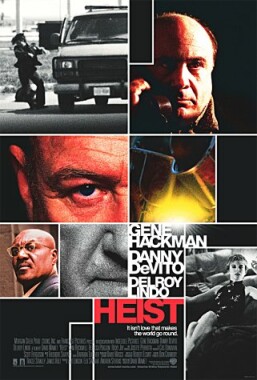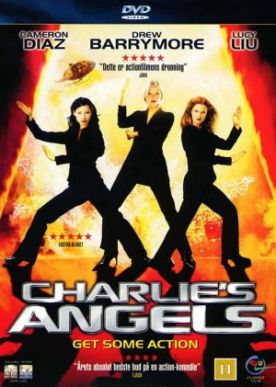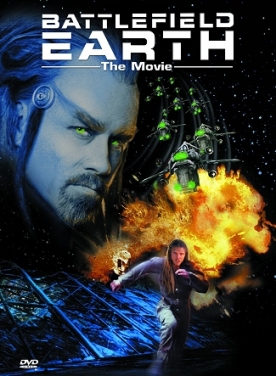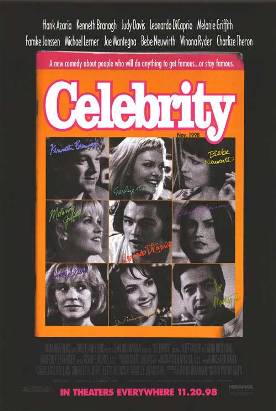Heist
Somewhere near the beginning of Heist, Joe Moore (Gene Hackman), one
of those immensely clever thieves with which the cinematic underworld seems to
abound, is seen explaining how he did something that he insists he was not smart
enough to do. “I just thought of a guy who was smarter than I was and then
imagined what he would do.” That turns out to have been more or less
exactly what David Mamet did in thinking up Joe Moore, who — stop reading
now if you plan to see the film and want to savor such surprise (not much) as
its ending may have to offer you — is always way ahead not only of the
cops but of his gangland rivals and his own accomplices. This line, then, is his
little post-modern joke. He knows that we know that he knows that these are
nothing like real people — let alone real criminals, who are generally
quite stupid. Instead, they are counters in a game of greed and treachery which
we are meant to be happy to let Mamet play with his hypothetically smarter
self.
I don’t know about you, but I like the people in movies to be, like
people in real life, capable of being surprised. It is when life sneaks up
behind us and smacks us with the wet fish of love or tragedy or joy or
bitterness that we are at our most human. And it is in how we respond to
life’s little surprises that we define ourselves in the eyes of others.
But Joe Moore is a man whom nothing can surprise. “You know me,
baby,” he says to his much younger wife, Fran (Rebecca Pidgeon): “I
don’t tie my shoes without a back-up plan.” Already, by this time,
it has been made clear to us that Joe will always have a back-up plan, so the
only thrill the movie has to offer is in waiting to see how, each time his
enemies seem to get the upper hand, Joe’s back-up plan, or Joe’s
master plan, will put Joe back on top.
Even when Fran betrays him — and all the way through we are meant not
to be sure whether she has betrayed him or only pretended to have done so
as part of Joe’s plan — the smile on Joe’s face tells us that,
yeah, he’d already planned on this too. In other words, it’s not the
betrayal that matters, as it would in real life. It’s that Joe
knows. In fact, Joe always knew. He was just waiting for the audience to
catch up with him. Meanwhile, we really have no idea why his enemies are his
enemies, or why Fran would betray him with a younger but much less prepossessing
thief, Jimmy Silk (Sam Rockwell), when there is no obvious attraction between
them. Danny DeVito plays a sort of fence who, for reasons that are never clearly
spelled out for us (Mamet obviously has no interest in the subject), has the
power to make Joe, against his will, pull one last job. The job to end all jobs.
Where have I heard something like this before?
It’s the Swiss job. But, as Mametian budgets don’t run to
shooting on foreign locations, the Swiss job is actually pulled off in Boston,
which is where, fortunately, Joe happens to be anyway. At least, he’s
there until he gets his share of the Swiss gold, hides it with characteristic
cleverness, and sails off to the Carribean on his handsome sailing yacht with
the shiny brass fittings. Actually, the camera’s lingering on the
shiny brass fittings is just another one of the deutero-Mamet’s
sleights of hand. Don’t be silly! Would the mastermind do anything as
obvious as that? But then it’s not as if the gold turns out to be
disguised decking, or masts or cutlery or fish-hooks either. Since nothing
cleverer than hiding the gold in plain sight occurs to Mamet’s smarter
self, he just puts it, well, somewhere else. The point is that Joe knows
and nobody else guesses, so the illusion of Joe’s ever-superior cleverness
is preserved.
This game has no charm for me. And I find Mamet’s patented weird-clever
dialogue more weird than clever. Occasionally he gets off a good line or two, as
when someone at a bar tells Fran that the whisky she is drinking will rot her
stomach. “Yeah,” she says, “but I get to drink it
first.” Once Joe’s sidekick Bobby Blane (Delroy Lindo) tells Jimmy,
who claims (with considerable understatement, I should say) not to be a
religious man, of a guy he knew in the army who was always a-praying and who
kept his Bible close to his heart. And what do you think? One day that Bible
stopped a bullet “that woulda just tore up his heart.” Bobby pauses
and then says: “Yeah, and if he’d-a had another Bible to put
in front of his face he’d-a been alive today.” Jimmy
doesn’t laugh much. Nobody in a Mamet movie laughs much, unless it is
bitter, ironic laughter. If his people laughed more they would be more like
people, and his movies would be the better for it.
But of course they don’t laugh because they are deadpanning the
author’s jokes for him, not making them, or listening to them, themselves.
Most of the weird-clever stuff consists of what are meant to be snappy comebacks
to conventional conversational banalities. Thus: “Nobody lives forever/
Frank Sinatra gave it a shot.” Or “Everybody needs money. That’s why they call it money.” Huh? Even when the Baroque
metaphors sort of come off, we are more conscious of the fact that this is not
something that anyone but David Mamet would ever actually have said.
“I’ll be as quiet as an ant pissing on cotton,” says Jimmy
Silk to Joe. “I don’t want you to be as quiet as an ant pissing on
cotton,” says Joe fiercely. “I want you to be as quiet as an ant not
even thinking about pissing on cotton.” Yeah, old Mamet can think
up some pretty good lines. But I wish he’d use them in a stand-up routine
instead of going to all the trouble of making a movie just to put them in.
Discover more from James Bowman
Subscribe to get the latest posts to your email.







